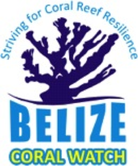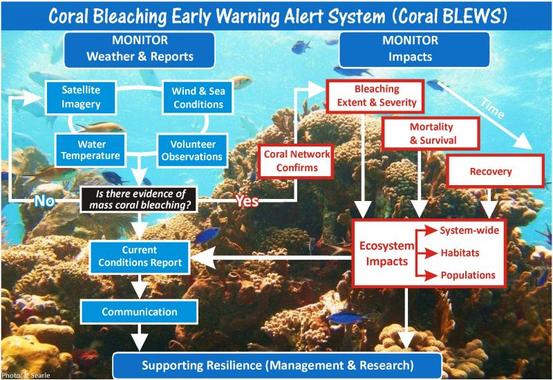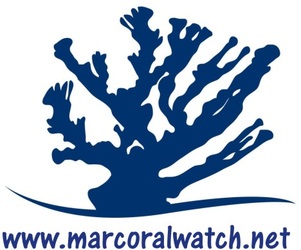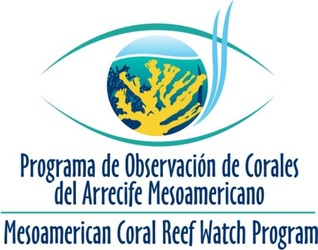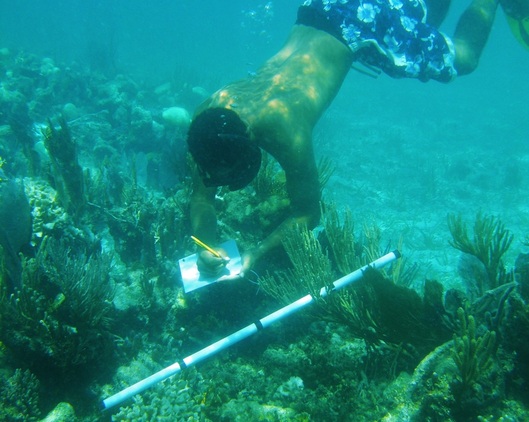|
The Belize Coral Reef Watch Program is part of the Meso-American Coral Reef Watch Program and is an “Early Warning Alert System” for coral bleaching. The goal of the program is to identify resilient reefs, or those reefs that bleach, but recover quickly, and determine which factors influence recovery.
|
History & GoalsLaunched as the Meso-American Coral Reef Watch Program in 2008 by The Nature Conservancy, World Wildlife Fund and PACT - the Protected Areas Conservation Trust as Early Warning Alert System for Coral Bleaching in Belize, or Coral BLEWS (see chart below).
The goals of the Coral Watch program are to:
The goal of the program is to raise awareness among stakeholders – marine guides, visitors, non-governmental organizations and government departments - on the increasing impacts climate change may have on the the delicate balance that exists on coral reefs.
Once aware of the conditions inherent of a natural and healthy reef, guides, visitors and park rangers can submit regular reports on the conditions of the reefs so that changes over time can be measured. The program monitors levels of coral bleaching of stony corals. As sea temperatures rise during the later summer months, the corals begin to get stressed and first become pale, then turn partially white, and then if the sea temperatures remain too warm for too long the entire coral colony can become completely white. |
Why?Corals can exhibit varying levels of resistant to increasing sea temperatures. What makes corals in certain areas of the reef resistant to the impacts of climate change can be repeated stress from locally warmer waters or sediment laden run-off. The corals in these areas have acclimatized to these conditions and become resilient. The acroporid corals - elkhorn and staghorn - that are growing on the reef now are believed to be resilient to our warming seas.
A goal of the program is to identify resilient reefs, or reefs that may bleach but recover quickly. When regular reports are received for dive and snorkel sites the data can be compared over time. As bleaching levels are forecast to increase over the next decade, the data the Coral Watch program collects is expected to identify resilient reefs. It is hoped that as impacts of climate change increase, resilient reefs will be areas that need protection to seed surrounding reefs with their "resilient" coral offspring. |
|
To achieve these goals the program relies on volunteers to monitor the reef and submit monthly reports, and more frequently during peak coral bleaching events.
Coral Watch Volunteers learn about coral reef ecology and how to identify coral bleaching and coral disease. Monitoring the reefs is easy once you know what to look for and only requires that you take a slate with you on your dive or snorkel trip and record the number of coral colonies you see bleaching. If no bleaching is observed we need to know this as well since this helps identify resilient reef sites. The reports submitted by volunteers form the first step in the Belize National Coral Bleaching Response Plan and are monitored by members of the Belize National Coral Reef Monitoring Network. When these reports indicate that there are bleaching coral colonies, scientific monitoring is conducted by the Coral Network members at more than 50 sites throughout Belize. |

